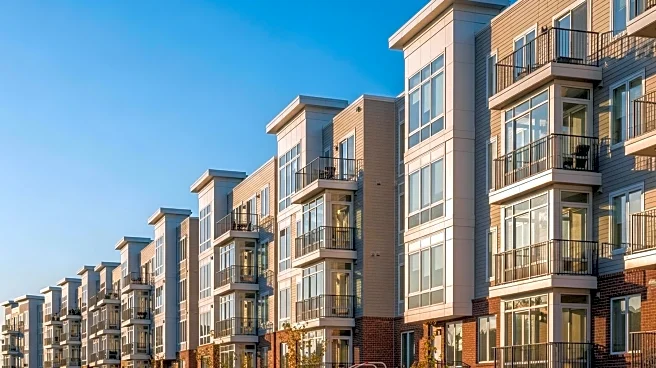What's Happening?
Rental prices in Quincy, Massachusetts, have shown a slight increase compared to previous months, according to data from Zumper. The median listing price for apartments in Quincy was $2,700 in August, marking a 4% rise from July's $2,601. One-bedroom apartments saw a 6% increase from July, with a median price of $2,580, while two-bedroom apartments increased by 4% to $2,960. Despite these increases, Quincy rental prices remain below the state median, with one-bedroom rentals 5% below and two-bedroom rentals 9% below. Statewide, Massachusetts rental prices have remained relatively stable, with one-bedroom apartments listed at $2,705 and two-bedroom apartments at $3,253, close to July's figures.
Why It's Important?
The rental price trends in Quincy reflect broader dynamics in the Massachusetts housing market, where prices have remained stable despite fluctuations in specific areas. This stability is significant for renters and landlords, as it suggests a balanced market without drastic price hikes. For renters, particularly those in Quincy, the slight increase in prices may impact affordability, especially as local prices are significantly higher than the national median. The data also highlights the disparity between local and national rental markets, with Quincy prices being 40% above the national median, which could influence migration patterns and housing demand in the area.
What's Next?
As rental prices continue to fluctuate, stakeholders such as renters, landlords, and policymakers will need to monitor these trends closely. Potential future developments could include adjustments in rental policies or incentives to address affordability issues. Additionally, the impact of new construction projects and changes in housing demand could further influence rental prices in Quincy and statewide. Stakeholders may also consider strategies to align local rental prices more closely with national trends to enhance affordability and attract new residents.
Beyond the Headlines
The rental market dynamics in Quincy may have broader implications for urban planning and economic development in the region. As rental prices rise, there could be increased pressure on local infrastructure and services, necessitating strategic planning to accommodate potential population growth. Additionally, the disparity between local and national rental prices may prompt discussions on housing equity and accessibility, particularly for lower-income residents. These factors could influence long-term policy decisions aimed at fostering sustainable and inclusive community development.












